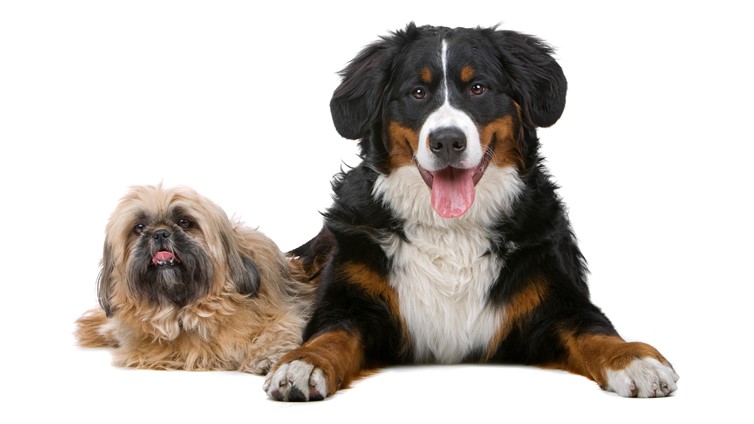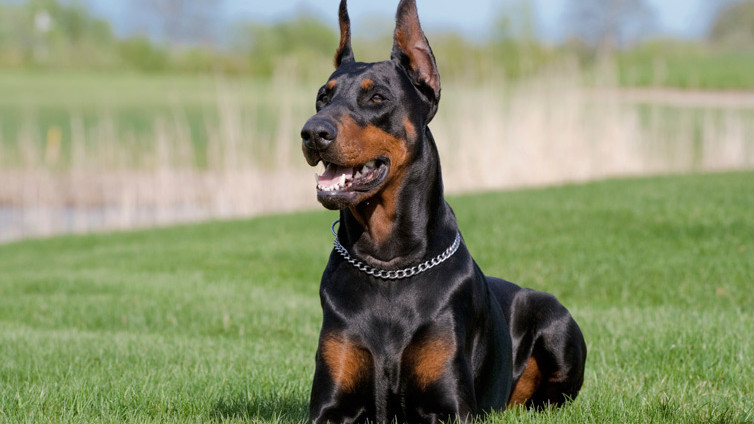Are you planning to become a dog owner? Good for you!
Getting a dog is very exciting! However, there are many things to consider before you make up your mind.
The size of your dog is definitely one of them!
Should I buy or adopt a dog? If I adopt, do I choose a puppy or an adult dog? Do I want an energetic dog? Can it handle to be left alone?
These are only some of the many questions you’re asking yourself when choosing the right dog for you. Size, besides being an aesthetic reason, is also something to think about due to many reasons. Let’s see why!
Differences Between Large And Small Dogs
Besides the obvious difference in looks, there are a couple more differences to have in mind. We’ll list the most common ones:
- Small dogs eat less. This is a logical difference, as big dogs need more calories because of their weight and size. As a result, big dogs are more expensive considering the amount of money you put on your dog’s food.
- Big dogs need more exercise. Even though there are exceptions, this is the general rule. All dogs need exercise, of course, but a lot of large dog breeds really need a lot of walks and runs. So, if you too are active a big dog might be the right solution.
- Small dogs live longer. Once again, this isn’t an universal rule, but many studies show that big dogs have shorter lifespans in general.
- Big dogs need more space. Another logical difference. The bigger the dog, the more space it requires. Small dogs are usually more comfortable with staying in smaller apartments, while big dogs like to have more space and preferably a yard.
- Small dogs seem to have more behavior issues. This probably isn’t the first time you’ve heard of small dogs being a bit unruly. Some studies indicate that this might be genetic, but also a result of training. So, if you’re getting a small dog pay extra attention to the socialization part.
- Small dogs have the reputation of being really cute, which is why many people want one.
- Smaller dogs are much easier to handle. You can put it in your lap and pick it up whenever you need to.
- Easier and faster to groom and wash.
- Traveling with small dogs is much less hassle.
- Pet products are cheaper for small dogs.
- Financially more affordable, as they need less food and their supplies are smaller and therefore cheaper.
- Misbehavior in small dogs often go uncorrected and therefore turn into bigger problems.
- House training is more difficult with small dogs, as they have complete access to the entire home.
- Smaller dogs get injured more easily than big dogs, so you must be prepared to keep your dog on a leash.
- Big dogs don’t require constant watchfulness as they are more independent and don’t get injured as easily as small dogs.
- Behavior problems are noticed easily and can be corrected.
- A big dog can make you lead a healthier lifestyle as you will have to be more active.
- Big dogs usually make their owners feel safe at home and outside with them.
- Big dogs are great for people with disabilities, as they can help a lot in everyday chores.
- A big dog will be rather easy to house train.
- Big dogs are more expensive, as they need more food, bigger toys and supplies.
- If their behavior problems aren’t taken care of, they can become destructive and dangerous.
- Large dogs have more health problems in general.
- What’s your living situation? Most importantly, if you’re renting – is a big dog allowed in your apartment? You need to check this with your landlord beforehand.
- Do you have a yard? If so, how big? Will it be enough for the breed you’re considering?
- Do you have small children? Really big dogs can knock kids over, but it doesn’t mean that small dogs can’t. So rather than size, when it comes to this matter, consider if the breed you’re interested in get along well with children.
- What’s your financial situation like?
- What kind of dog suits your personality? Are you an active or stay-at-home person? Do you travel a lot and want to take your dog with you as much as possible?
If you’re still thinking: “Should I get a big or a small dog?”, continue reading and consider all these things in detail, one by one!
Nutrition
It’s only natural that big dogs will need more food than smaller dogs. Given their size and weight they can and should eat quite more than small dogs. As a result, you will spend much more money on food if you have a big dog.
Money and your financial situation is most certainly something you want to take into consideration when you’re getting a dog. You want your dog to be happy and healthy, but you also want to continue leading a normal life in term of money. So, if you know you can’t afford it, don’t get a big dog.
Energy Level
The energy level to consider isn’t only the dog’s, but yours as well. If you’re an active person, you will probably want a dog that can match your energy needs. Most often, big ones do.
On the other hand, if you’re fine with a couple of short walks per day and like staying in, there are a lot of smaller dogs that will gladly do this with you.
Health Problems
Again – both yours and your dog’s. If you’re the one with certain health problems, a big and very active dog might not be a great solution. On the other hand, big dogs can be great for people with disabilities and limitations and help more than smaller dogs can.
When it comes to your dog’s health problems, they depend more on the breed than the size. Every breed is more prone to certain health problems and you should definitely look into that when getting a dog.
Home Size
The size and location of your home can be an important factor when it comes to choosing the right breed. Even though it’s not an universal rule, bigger dogs need more space in general and will really enjoy running around in a yard. On the other hand, smaller dogs can be completely satisfied in a small apartment.
However, size isn’t the only aspect determining whether a dog will need more space – the temperament and energy level are more important. But, if you have a really small apartment, it can get rather crowded with the appropriate crate size, sleeping arrangement and moving around.
You should also consider the location of your home. If you were to get a big dog, would you have parks or other places to take it? If not, maybe a small dog is a better choice.
Protection
All dogs want to protect their family to a certain level, they just do it differently. While small dogs are great at alerting you in case of danger they’re not that intimidating to strangers as big dogs can be. However, small dogs too can protect you really well and act bigger than they are.
Training
Training your dog should start the moment you bring it home with you. Naturally, size isn’t the main factor to consider when it comes to training, but it’s still important to have in mind that bigger dogs are more of a physical challenge.
On the other hand, smaller dogs can often be quite rowdy, so even though they don’t require as much physical strength, you will have to focus on their socialization and behavior a lot.
Hygiene
Even though most dogs shed, big dogs tend to shed more than small ones for a couple of reasons. One – they often have double coats, such as the German Shepherd. Two – they are bigger, so they have more hair to shed.
When it comes to grooming, it takes more time with bigger dogs as you can guess. The same goes for washing. Also, when washing a big dog, you need more space than with a small dog.
Traveling
If you travel quite often and you want to take your dog with you, it’s obviously more convenient and easier with a smaller dog. That doesn’t mean that big dogs can’t accompany you on your travels, but it’s certainly much less effort with a small dog.
Which Is The Best Choice For New Owners? What Is The Right Dog For Me?
If you’re a first-time dog owner, you’re probably wondering if some dog is easier for beginners or if size plays a big role in the decision. Of course, we can’t tell you what to do as it largely depends on the breed and its temperament. However, we’ve created pro and con lists for both small and big dogs so you can make up your mind easier.
Small Dog Pros
Small Dogs Cons
Big Dogs Pros
Big Dogs Cons
Things To Consider When Choosing Size
So, before you make your decision, here are some appropriate questions we wanted to emphasise:
Besides size, check out the video below and see what else you should think about before you get a dog!
Conclusion
Ultimately, it’s up to you! No one can tell you that one dog size is better than the other. It all comes down to personal preference and your personality. So, rather than focusing on the size, try focusing on the breed and its temperament. What kind of dog will best fit in in your life?
Before you make your decision, consider your financial situation, home size, life style, activity level and other important matters for you. Be sure that you’ve thought through as much as possible before you become a dog owner. Getting a dog is wonderful in so many ways, but it requires some thought.
The bottom line is – do whatever you feel is right for you and enjoy being a dog owner!





















